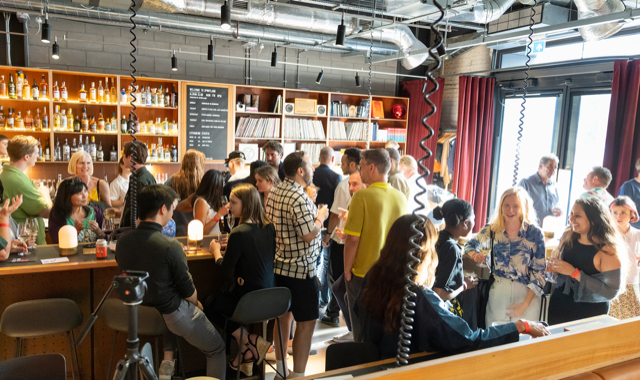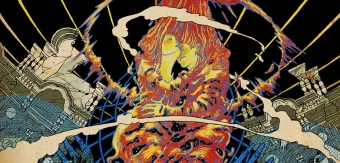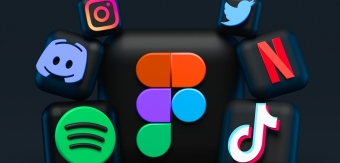Chrissy Levett trained as an illustrator and print maker before studying design + communications at the Royal College of Art, in London. She is an accomplished creative director and founder of Creative Conscience, a global organisation that encourages, trains and rewards creative thinking for social + environmental impact.
She is a motivational speaker for creativity and social impact, has worked in several countries across many creative disciplines. Today she is London based and designs training, workshops and behaviour change purley for social and environmantal impact.
She is also a TEDx speaker, has been interviewed for numerous podcasts and is a psotive creative activist, having inspired and coached hundreds of creative thinkers to build game changing projects across the world.
But that’s just the cliffnotes of a fascinating individual. So, let’s get to know Chrissy a little better, shall we?
Tell us a bit about your role! Is there a “typical” day?

Wake up, meditate, do five Tibetan Rites, have a cold shower, walk to the studio or work from home, talk to and email loads of wonderful creative changemakers - always focused on positive change.
I make lots of mischief, do some boring stuff, and have some ideas about how we can better serve the planet and each other. Walk around my area of London, try to do 10k steps each day. Eat loads of green stuff, work really hard because I love it, practice self care, and do digital detoxes at the weekend.
What was the biggest challenge in getting to your current position?
Trying to get the creative industry to understand how important it is to put the planet’s interest above profit. We can’t eat money, right? No one wins on a dead planet - and creativity is key to telling that story. We have hope if we all rise up and make ourselves and others working in this area heard.
My biggest challenge is all about shifting behaviours and systems. People don’t understand because we’re stuck in what already exists. If we can imagine something new then we can change things and move into a different space, letting go of constant growth - perhaps into a place of true conscious consciousness, something entirely altruistic.
We try to get our industry to understand with empowering talks, workshops and training where we have countless examples of great creative game changing ideas.
What is your personal background and what role did it play in your career?
At my school in Surrey, I was labelled stupid because I couldn’t read or write. I have dyslexia, am dyspraxic and have ADHD. However I knew I wasn’t stupid. So I simply focused on what I could be and that was to create. I drew and made – and I worked with passion, perhaps driven to prove them wrong.
I completed a foundation at Kingston Polytechnic, then a degree in Print-Making, Graphics and Illustration at Canterbury School of Art. Finally, I attended the Royal College of Art in London to study Graphic Design and Communication.
I worked for different people as the recession meant there was a lack of permanent jobs. I learnt from great independent designers and they taught me valuable crafting skills. Some brilliant female designers Margaret Calvert OBE, Chrissie Charlton who had trained with Sir Herbert Spencer, and ex-Pentagram designer Liz James, plus other designers like Terry Jones MBE.
I then travelled a lot - including to war-torn countries - working and developing infographics for health and education. In South East Asia I got a job for the Mines Advisory Group in Cambodia, and I ended up working for them in Laos, Angola, Zambia and Mozambique. I originally planned to work in Hong Kong but never settled there. I also worked in the Philippines on a documentary film about child slavery in gold mines and helped a friend in Indonesia on ads, and briefing taught at an art school in Singapore.
I learnt through experience. I drew every single day - I have countless visual diaries and have seen something from more than 110 countries. I used to be passionate about seeing the entire world. I lost the passion for that dream when I started to understand how destructive flying is for our environment.
I finally had to go PAYE because as a freelancer, I couldn't be a board member or lead creative in a design and branding agency. My first PAYE job was for an agency called LFH (Illumination). It was a great job - I loved it. However we were creating beautiful award-winning crap that the world didn’t need. I became depressed and disillusioned. That’s when Creative Conscience was started.
What is your biggest career-related win? What is your biggest loss?
Biggest win was entering and being shortlisted for an award that changed my life when I was just twenty. It was the Cecil Beaton Vogue Illustration Awards. The work was exhibited at the Royal Academy and in that room I met wonderful people who helped me. Biggest loss was working on projects that I now know to be damaging to our world and society - for example, high end alcohol brands and luxury chocolates / confectionery - ie. booze and sugar - which are over-packaged and unnecessary.
Which individuals and/or agencies do you gain inspiration from? Do you have any heroes in the industry?
I take my inspiration from people and things that sit outside our industry. That’s where magic lies – looking out not looking in. My heroes are those who change the course of history: Gandhi, Mandela, Einstein. I collect quotes, they are perfect for those of us who can’t read well.
If you could go back to your teenage years, would you have done things differently? Do you have any regrets?
I would have worried less and taken up meditation years ago. Listened more, talked less. Been braver and more vulnerable. Biggest regret is not being authentic - I was too afraid to be.
Refer to my TEDx talk for examples of my mistakes.
If you weren’t in your current industry, what would you be doing?
I think now, knowing what I know, I would think about going into politics - although I’m not sure I would qualify, maybe there one can make a more positive difference. I believe we need creative thinkers in politics to get us out of the mess we are currently in.
I wonder how many of our leaders have studied the arts? Imagine what it would be like if we had a diverse group of creative thinkers as our leaders, it would be a very different world.
What’s your one big dream for the future of the industry?
That at the heart of every industry, not just ours, across the world we put people and planet first above all else. That’s my dream.
What are your top tips for aspiring creative professionals?
Follow your heart, don’t give up, find a community of people who can support you with your passions and values. Be in service to others, try not to worry it's a waste of energy, laugh, practice self care, meditate, draw, dance, volunteer, and know that anything is possible if you work hard with passion and practice gratitude.
What are your top tips for other creative leaders?
Stop saying ‘yes’ to companies who are destroying our futures, give young people a place on at the table, be braver, and know that you have enough.
When you think about your team, what is the thing that matters to you the most?
A number of things. That we pull our weight, that we raise each other up, look out for each other and for those around us, that we are passionate about what we do and that it has meaning.
Do you have any websites, books or resources you would recommend?
https://www.creative-conscience.org.uk
Listen or read:-
Human Kind by Rutger Bremer
A new earth by Eckhart TOLLE
Ruined by Design by Mike Monteiro
Guardian Podcast Today in Focus
Russell Brand - Under the Skin podcast






